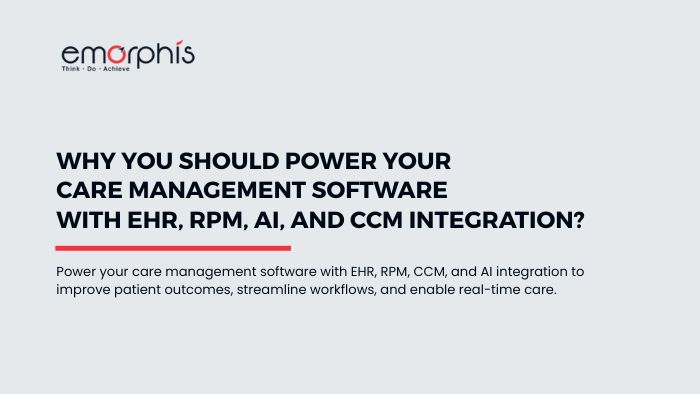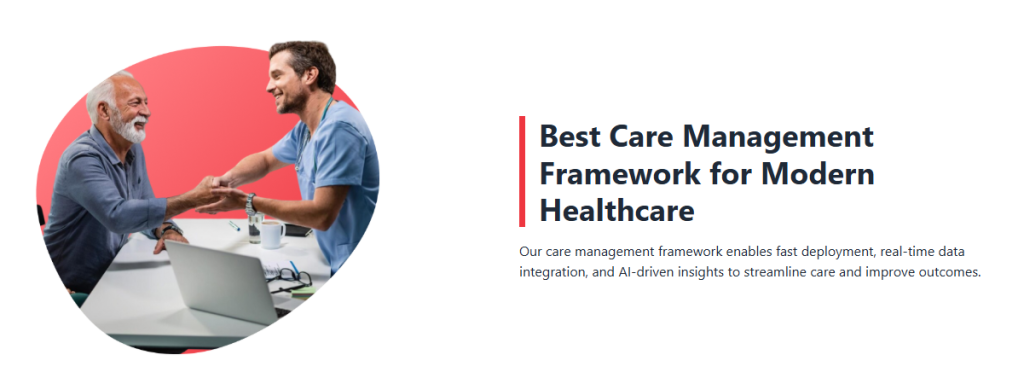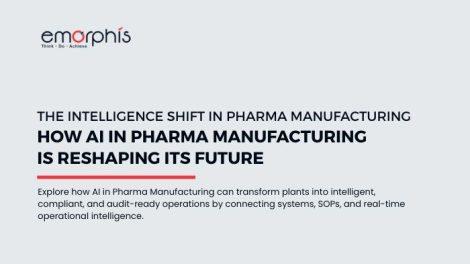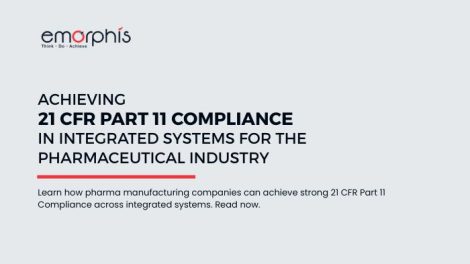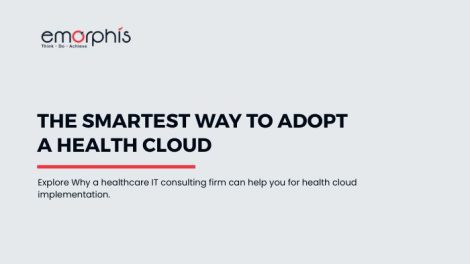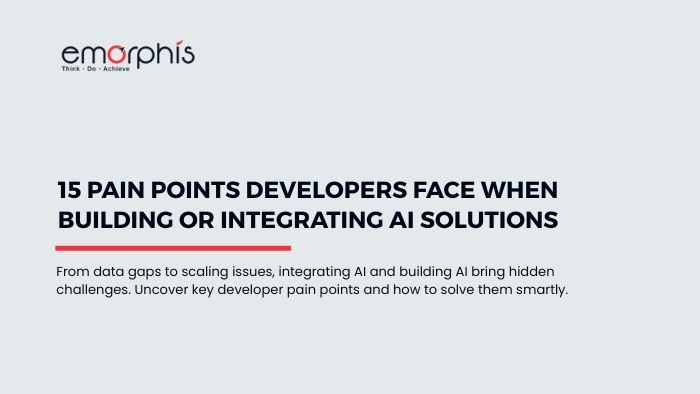Why Healthcare Providers Choose to Buy Care Management Software
Let’s understand this first, healthcare delivery has changed drastically over the last decade. Providers are no longer judged only on the number of patients they see but on the quality of care, patient satisfaction, and long-term outcomes. To meet these expectations, hospitals, clinics, and care management organizations are looking for technologies that unify patient data, enable proactive care, and reduce administrative burden. One of the most effective ways to achieve this is to buy care management software that integrates seamlessly with existing systems.
Unlike standalone tools, a comprehensive care management solution combines Electronic Health Records (EHR), Remote Patient Monitoring (RPM), AI, and Chronic Care Management (CCM) into one unified platform. This integration allows providers to track patient data in real time, manage chronic conditions proactively, and maintain a single source of truth for medical records. When providers choose to buy care management software, they are not only investing in technology but in a system that supports value-based care models, improves outcomes, and reduces overall costs.
The rising adoption of RPM devices, coupled with new Medicare and Medicaid reimbursement models for CCM services, has created a strong case for healthcare organizations to upgrade their technology stack. Today, buying care management software is no longer optional; it is a strategic move that enables providers to stay competitive in a rapidly evolving healthcare landscape.
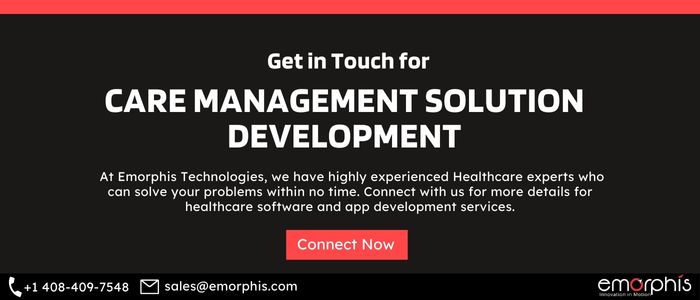
Let’s explore how EHR integration, RPM, and CCM also AI, work together in a care management platform, why providers should carefully evaluate their options before they buy care management software, and how this investment shapes the future of patient care.
EHR Integration in Care Management Software
When healthcare providers buy care management software, one of the first things they look for is how well it connects with their Electronic Health Records (EHR). EHR systems are already used widely, but if they work alone, they often create problems such as scattered patient information, duplicate data, and poor coordination between teams. By choosing a care management solution that integrates smoothly with EHR, these challenges can be solved.
Why EHR Integration Matters
- Single source of truth: All doctors, nurses, and care managers see the same patient records in real time.
- Better teamwork: Everyone on the care team can collaborate without confusion or delays.
- Reduced errors: When records are updated in one place, mistakes from duplicate data entry go down.
- Improved patient care: Providers can see a complete history of the patient and make informed decisions.
Compliance and Security
When you buy care management software with EHR integration, it also helps with meeting regulations like HIPAA. Secure access and sharing of patient data become easier, which means providers can focus more on patients instead of paperwork.
Interoperability Benefits
Modern care management platforms are designed to connect with multiple EHR vendors using standards like APIs and HL7 FHIR. This means:
- Clinics and hospitals using different systems can still share data easily.
- Care coordination improves across different healthcare facilities.
- Workflows become smoother and less dependent on manual updates.
In short, EHR system integration is not just about keeping digital records. It makes care management software a powerful tool for improving teamwork, ensuring compliance, and delivering better patient outcomes. That is why healthcare providers prefer to buy care management software with strong EHR features.
Check a case study on EHR Integration with Care Management Software.
Remote Patient Monitoring (RPM) in Care Management
Another important reason to buy care management software is the ability to include Remote Patient Monitoring (RPM). RPM allows doctors and care teams to track a patient’s health outside the hospital or clinic, using connected devices like smartwatches, blood pressure monitors, or glucose trackers. This means patient care does not stop once the appointment ends.
Why RPM is Important
- Continuous monitoring: Patients with chronic conditions can be observed daily, not just during visits.
- Early detection: Alerts can notify providers when readings show unusual changes.
- Fewer hospital visits: By keeping track of health at home, unnecessary emergency visits and readmissions can be reduced.
- Better patient involvement: Patients feel more engaged when they can see and share their own health data.
Benefits of RPM in Care Management Software
When healthcare providers buy care management software that includes RPM features, they gain:
- Real-time dashboards showing patient vitals.
- Automatic alerts for abnormal readings.
- Secure storage of remote health data directly in the EHR.
- Improved communication between patients and providers.
Discover how we, as a top Remote Patient Monitoring software development company, help healthcare providers track patient health remotely and deliver real-time care.
Example Use Cases
- A heart patient using a device that reports blood pressure and heart rate to the care team daily.
- A diabetic patient tracking glucose levels at home, with results sent to the doctor for adjustments in treatment.
- Elderly patients are monitored for falls, with instant alerts to caregivers.
In simple terms, RPM makes healthcare more proactive. Instead of waiting for a patient to come in with a problem, providers can see warning signs early and act quickly. For this reason, organizations are choosing to buy care management software that comes with strong RPM integration.
Check a case study on RPM in Care Management Software.
Chronic Care Management (CCM) Capabilities
Many patients today live with long-term conditions like diabetes, heart disease, or asthma. Managing these conditions requires continuous attention, not just during doctor visits. That is why providers prefer to buy care management software with built-in Chronic Care Management (CCM) features.
Why CCM Matters
- Ongoing support: Patients with chronic illnesses need regular check-ins and reminders.
- Coordinated care: Multiple specialists can work together on a single care plan.
- Better quality of life: With proactive care, patients can avoid complications.
- Reimbursement opportunities: Medicare and Medicaid provide reimbursements for CCM services, making it financially valuable for providers.
Key Features of CCM in Care Management Software
When providers buy care management software with CCM integration, they gain tools like:
- Automated reminders for medication, follow-ups, and appointments.
- Shared care plans that can be updated by all providers involved.
- Patient education resources are delivered through the platform.
- Reports that track progress and help in decision-making.
Find a guide to Chronic Care Management Software Development.
Examples
- A diabetic patient receives monthly calls and reminders to check glucose levels and schedule regular eye exams.
- A patient with heart disease is supported by a coordinated team of cardiologists, dieticians, and primary care doctors, all working on one care plan.
- A clinic can generate reports to show compliance with chronic care guidelines, ensuring better reimbursement.
By investing in a platform with CCM, healthcare providers can deliver continuous and preventive care, rather than waiting for health crises. This is another reason why it makes sense to buy care management software that includes strong CCM capabilities.
Check the case study on CCM in Care Management Software.
How to Buy the Right Care Management Software
Deciding to buy care management software is an important step, but choosing the right solution requires careful planning. Not all platforms are the same. Some focus only on electronic records, while others include powerful tools like Remote Patient Monitoring (RPM), AI, and Chronic Care Management (CCM). Providers need to make sure they invest in a system that fits their goals, budget, and long-term strategy.
Key Factors to Consider Before Buying
- Integration with existing systems: The software should connect easily with your current EHR and other digital tools.
- Scalability: Choose a solution that can grow with your practice, from small clinics to large hospital networks.
- Ease of use: The platform should be simple for doctors, nurses, and patients to use without heavy training.
- Security and compliance: Look for HIPAA-compliant systems that ensure patient data is always safe.
- Support and training: A good vendor provides onboarding, customer support, and continuous updates.
Pricing Models to Compare
When providers buy care management software, cost plays a big role. Common options include:
- Subscription model: Monthly or annual fee, often cloud-based and easier to start with.
- Per-patient model: Pricing depends on the number of patients managed.
- Enterprise license: A one-time investment for large organizations that need complete control.
Tips for Choosing the Best Vendor
- Request a demo to see the platform in action.
- Compare multiple vendors instead of choosing the first option.
- Ask about customization options to fit unique workflows.
- Check reviews and case studies to see how the software performs in real-world healthcare settings.
By considering these factors, providers can make a confident decision when they buy care management software. A well-chosen solution not only improves patient outcomes but also helps healthcare organizations achieve long-term efficiency and cost savings.
Click the link to find the Guide to Developing Care Management Software Solutions.
Challenges in Implementing Care Management Software
Even when healthcare providers decide to buy care management software, putting it into practice can bring some challenges. These issues are common across hospitals, clinics, and care management organizations, but they can be managed with the right planning.
Common Challenges Providers Face
- Data security concerns: Handling sensitive patient information requires strict security measures. Any breach can lead to serious legal and financial issues.
- HIPAA compliance: Ensuring that the software and workflows follow healthcare regulations is critical.
- Integration issues: Connecting the new system with existing EHRs, billing platforms, or third-party apps can sometimes be complex.
- User adoption: Doctors, nurses, and staff may be slow to adapt if the system feels too difficult or time-consuming.
- Training requirements: Staff need proper training to use the new platform effectively, which can take time and resources.
How to Overcome These Challenges
- Choose a vendor that guarantees HIPAA-compliant, secure software.
- Ensure the platform offers seamless interoperability with EHR and other systems.
- Start with step-by-step onboarding rather than trying to switch everything at once.
- Provide regular training and support so staff feel confident using the software.
- Collect feedback from providers and patients to make continuous improvements.
By preparing for these challenges in advance, healthcare organizations can make the transition smoother when they buy care management software. A thoughtful approach ensures that the investment brings real value without disrupting day-to-day care delivery.
Future Trends in Care Management Platforms
Healthcare technology is advancing quickly, and providers who buy care management software today need to think about how it will adapt to the future. The goal is not only to solve current problems but also to prepare for new models of care and patient expectations.
Get to know the details of the Care Management Software Solution.
Key Trends Shaping the Future
- AI and predictive analytics: Care management platforms will use artificial intelligence to identify health risks early and suggest preventive care plans.
- Personalized care: Data from EHR, RPM, and CCM will allow providers to create care plans tailored to each patient’s lifestyle and medical history.
- Cloud-based solutions: More organizations will prefer cloud platforms for easier scalability, flexibility, and cost efficiency.
- Patient engagement tools: Future software will focus on keeping patients active in their care through apps, reminders, and education resources.
- Value-based care: Care management platforms will play a central role in shifting from fee-for-service to value-based care, where outcomes matter more than the number of visits.
Why Future-Readiness Matters
When healthcare providers buy care management software, they are making a long-term investment. A platform that is ready for AI, cloud integration, and value-based care ensures that the organization stays competitive. Future-ready solutions will also help providers reduce costs, improve patient satisfaction, and meet evolving regulatory requirements.
In the coming years, care management platforms will not only be tools for record-keeping but intelligent systems that guide clinical decisions and support healthier populations. This is why buying a modern, future-focused care management solution is a strategic choice for healthcare organizations.
Build Faster, Smarter, and Scalable Care Management Solutions with Emorphis
Emorphis has a ready framework that is AI-ready and cloud-based. This framework is designed to help healthcare organizations build their Care Management Software Solution in just a few weeks. By reducing long development cycles and ensuring scalability from day one, providers can focus more on delivering care instead of worrying about complex IT challenges.
Explore our Care management software framework
Key Advantages When You Buy Care Management Software
When healthcare providers choose to buy care management software, they unlock a wide range of benefits that impact patients, staff, and overall operations.
Better Patient Outcomes and Engagement
- Patients receive personalized care plans designed around their health conditions, goals, and preferences.
- With remote monitoring and regular follow-ups, providers can intervene early if there are changes in a patient’s health, preventing complications.
- Patient portals and mobile apps make it easy for patients to track their progress, access records, and communicate with providers, creating an active partnership in care.
Improved Operational Efficiency and Cost Savings
- Automated workflows remove repetitive tasks such as manual data entry or scheduling, giving staff more time to focus on care.
- Seamless integration with EHRs, billing, and insurance systems prevents duplication and reduces errors.
- Real-time analytics and dashboards provide insights into resource usage, helping administrators cut unnecessary expenses while maintaining quality care.
Seamless Collaboration Across Teams
- All providers, from doctors and nurses to care managers, have access to a single source of patient truth, reducing confusion.
- Cross-department collaboration becomes smoother, minimizing delays and ensuring patients get coordinated care.
- Shared dashboards and communication tools reduce errors caused by miscommunication.
Scalability and Flexibility
- Cloud-based infrastructure means the solution can grow as your patient base or organization expands.
- AI-powered features allow predictive care planning, early risk detection, and more informed decision-making.
- The system can adapt quickly to changing regulations, reimbursement models, or new care delivery approaches without costly overhauls.
Conclusion
When you decide to buy care management software, it is not just about adding another digital tool. It is about building a stronger foundation for patient care, reducing operational burdens, and preparing your organization for the future of healthcare. A well-designed care management platform ensures that patients receive personalized attention, providers gain real-time insights, and organizations achieve both efficiency and compliance.

With solutions that are AI-ready, cloud-based, and scalable, healthcare providers can adopt technology that evolves to meet their changing needs. Emorphis provides a ready-to-use framework that enables you to build and deploy your solution in just weeks, making it easier to stay ahead in a rapidly evolving healthcare landscape.
By investing in the right platform today, you prepare your team for better outcomes tomorrow.



